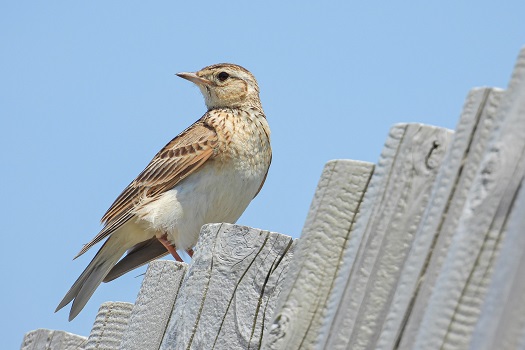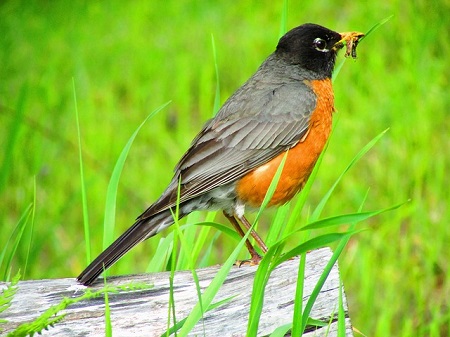Happy as a Lark
 Nothing compares to the sound of birds singing. Hearing their music makes many of us happy as a lark.
Nothing compares to the sound of birds singing. Hearing their music makes many of us happy as a lark.
Listen to the songs of a western meadowlark here. For six-year-old William Zhang’s performance of Tchaikovsky’s Song of the Lark, Op. 39 No. 22, listen here.
Happy as a lark means very happy.
Little things often give us joy.
- A child with a toy
- Time with family and friends
- A walk in the park
We increase our happiness when we make others happy.
Causing them to smile makes us smile too.
Look for opportunities to make others happy as a lark.
We get so busy we often fail to notice needs around us. Instead, we can:
- Babysit for a tired mom, swamped with responsibility.
- Run errands for a sick neighbor.
- Take children to sing for a senior citizens group
- Cheer up someone down in the dumps.
Enjoy the songs of birds. Share your songs of joy with a hurting world.
“The birds of the sky nest by the waters; they sing among the branches” (Psalm 104:12 NIV).
Thanks to Bill Ellis, whose May 2022 Kentucky Monthly article, “Though I’ve Never Played a Violin, I’m Fit as a Fiddle,” led to this post. Image by Johnnys_pic from Pixabay.
Do you have an expression you want explained or a thought about this one? If so, please comment below.
Subscribe to receive my weekly posts by email and receive a free copy of “Words of Hope for Days that Hurt.”
If you enjoyed this post, please share it with your friends.
 Please welcome my friend Martin Wiles as today’s guest writer. Martin is the Managing Editor for
Please welcome my friend Martin Wiles as today’s guest writer. Martin is the Managing Editor for  “The early bird gets the worm.”
“The early bird gets the worm.”
 Birds of a feather flock together is true for people as well as birds. A flock (noun) is a group of birds, animals, or people. When birds, animals, or people flock (verb) together, they get together. They form a group.
Birds of a feather flock together is true for people as well as birds. A flock (noun) is a group of birds, animals, or people. When birds, animals, or people flock (verb) together, they get together. They form a group. My list of things for the birds includes:
My list of things for the birds includes: I have heard people say they kill two birds with one stone all my life. The picture in my mind bothers me.
I have heard people say they kill two birds with one stone all my life. The picture in my mind bothers me.